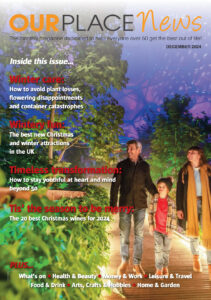What makes for fulfilling work in later life?
The Centre for Ageing Better has released a new report, Fulfilling work: what do older workers value about work and why? which identifies the characteristics of work that are important to people aged 50 and over, and explores actions employers can take to attract and retain them.
 Ageing Better reports that understanding what older workers want is the first step in helping employers, policy makers and others create age-friendly workplaces. Ageing Better commissioned the Institute of Employment Studies to carry out the study.
Ageing Better reports that understanding what older workers want is the first step in helping employers, policy makers and others create age-friendly workplaces. Ageing Better commissioned the Institute of Employment Studies to carry out the study.
The report finds that health is the most important factor affecting older workers’ decisions to continue in work, ahead of job satisfaction and job quality.
The report recommends that employers should provide full and equal access to flexible working arrangements, occupational health support and appropriate workplace adaptations to help older workers to manage health conditions at work.
On the whole, older workers value the same aspects of work as workers of other ages – making a meaningful contribution, social interaction and opportunities for learning and progression. Older workers are more likely to stay in work if they think their work matters, their employer supports them and their needs are taken seriously. But for a variety of reasons including age discrimination, this doesn’t always happen.
Dan Jones, Director of Innovation and Change at the Centre for Ageing Better, said:
“By 2020, one in three workers will be over 50. Employment rates for this age group have been growing, but they remain much lower than for younger people, with a rapid falling off after the age of 55. Increasing the numbers of people over 50 in fulfilling work is good for society, good for business and most importantly good for people themselves.
“Older workers want fulfilling work that is personally meaningful, flexible, and that provides social interaction including across generations. They expect to be treated equally and fairly as any other worker, with flexibility, opportunities for development, and access to lifelong learning. “To retain older workers, employers need to understand what matters to them, and ensure they are treated fairly and get the same opportunities as workers of other ages. However, we know that this is not always the case. “People over the age of 50 are more likely to have caring responsibilities and health conditions. Older workers who have access to support find it easier to balance working and caring, are more loyal to their employer and are more likely to remain in work. Employers need to support carers and people with health conditions, and provide workplace adaptations for those who need extra support.”
(Article source: Ageing Better)

